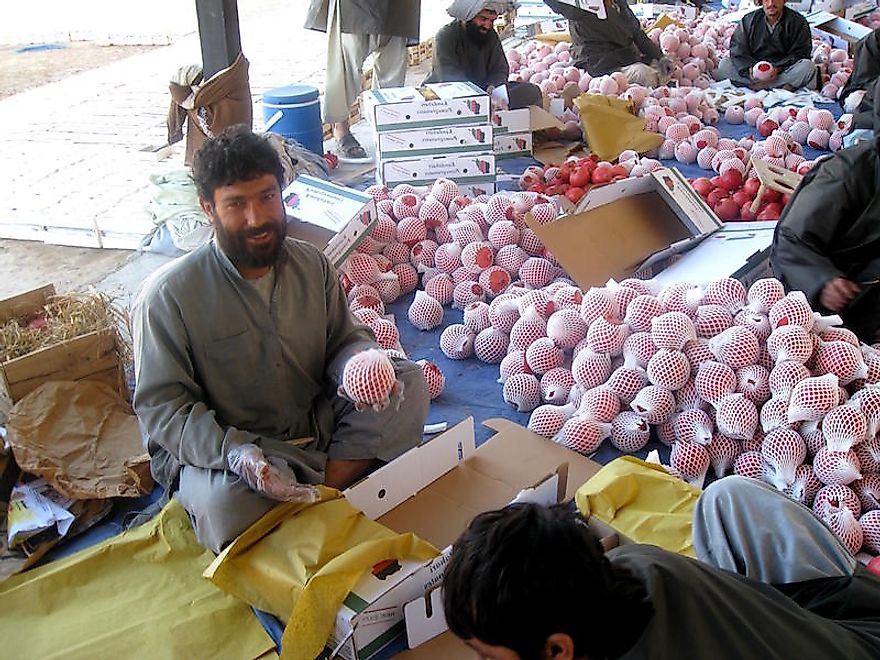12 Countries With The Slowest Movements Of Exports

Export earning is a primary source of revenue for the exporting countries. Countries with excess production of a given commodity typically look for a foreign market for their products. Exports do not only earn revenue to a country but also stabilizes the domestic commodity price by regulating supply. The current world markets face stiff competition especially from countries exporting similar products. Countries with efficient infrastructure and favorable export policies tend to benefit from this competition. Countries without efficient infrastructure and friendly export policies face a delay in accessing the market and also run the risk of losing perishable goods. Some of the countries with the slowest movement of exports include Afghanistan, Iraq, Kazagsthan, Tajikistan, Chad, Kyrgyzstan and Niger among others.
Countries With The Slowest Movement Of Exports
Afghanistan
Afghanistan is one of the most difficult countries to do business due to the myriad of challenges coming into play during the business transactions executed here. Countries and individuals buying and importing goods from Afghanistan have been forced to contend with the delays. It takes at least 86 days to export a product from Afghanistan with several firms making losses especially those exporting fruits. The delays are mainly caused by the poor infrastructure and limited access to power and transportation. The legal framework and regulatory enforcement which are not well defined makes it difficult to clear products for exports. The existence of mafia in the WAGA port which controls most of the activities in the port also contributes to such delays.
Iraq
Iraq’s transparency challenges are among some of the contributing factors to delays in exportation. Bribes and kickback demanded by the official at the ports has affected business generally in Iraq. It takes an average of 80 days to export a product from Iraq. Besides, poor infrastructure as a result of constant wars in the country has led to slow access to the port causing even further delay. Inadequate flights and vessels to facilitate transportation of goods overseas have also contributed significantly to the slow movement of exports.
Kazakhstan
Export movement in Kazakhstan is very slow taking an average of 79 days. The slow export movement has been attributed to the fact that Kazakhstan is a landlocked country, and has no direct access to the European market. The movement of export entirely depends on the country through which it exports its products. High transport cost and fluctuations in the transport cost directly affect the export movement in Kazakhstan. The highly regulated and less transparent market-driven business environment is also a contributing factor to the slow export movement.
Implications Of Slow Export Times
Slow export time has several implications on the exporting countries. Countries with long export movement time are likely to be affected by the fluctuating market prices. The products exported when the prices were high are likely to fetch a low price by the time it gets to the market. Perishable goods will spoil if they take long to get to the market leading to further losses. Delays in exports also push the cost of doing business as the products will incur the further cost of storage before they are delivered to the market. Countries that tend to face challenges of export will always look for alternative markets thus the country of delay will likely lose the market for its products.There is a significant delay for landlocked countries, and their goods take longer to export when compared to countries with seaports.
12 Countries With The Slowest Movement Of Exports
| Rank | Country | Time to export in days |
|---|---|---|
| 1 | Afghanistan | 86 days |
| 2 | Iraq | 80 days |
| 3 | Kazakhstan | 79 days |
| 4 | Tajikistan | 71 days |
| 5 | Chad | 70 days |
| 6 | Kyrgyzstan | 63 days |
| 7 | Niger | 56 days |
| 8 | Venezuela | 56 days |
| 9 | South Sudan | 55 days |
| 10 | Uzbekistan | 54 days |
| 11 | Zimbabwe | 53 days |
| 12 | Zambia | 51 days |











